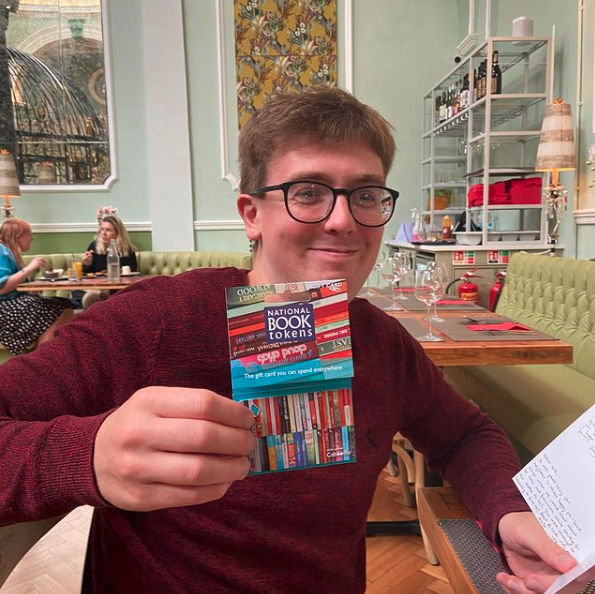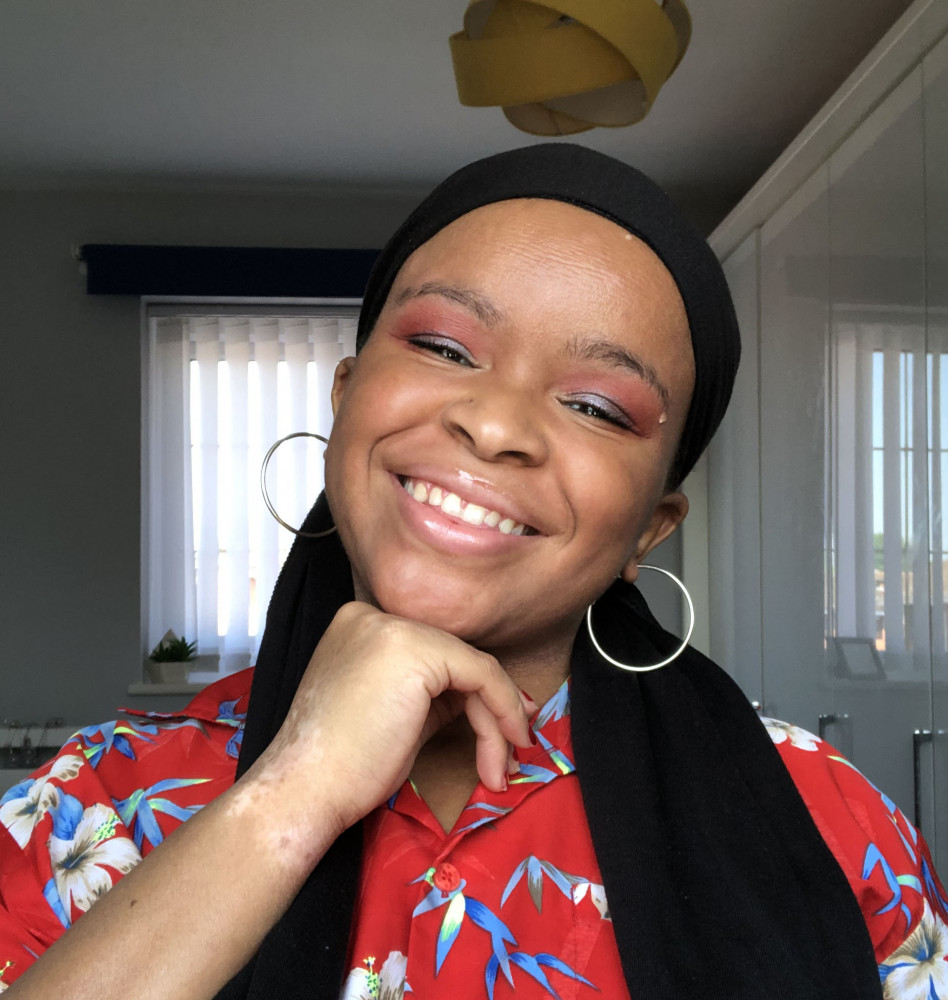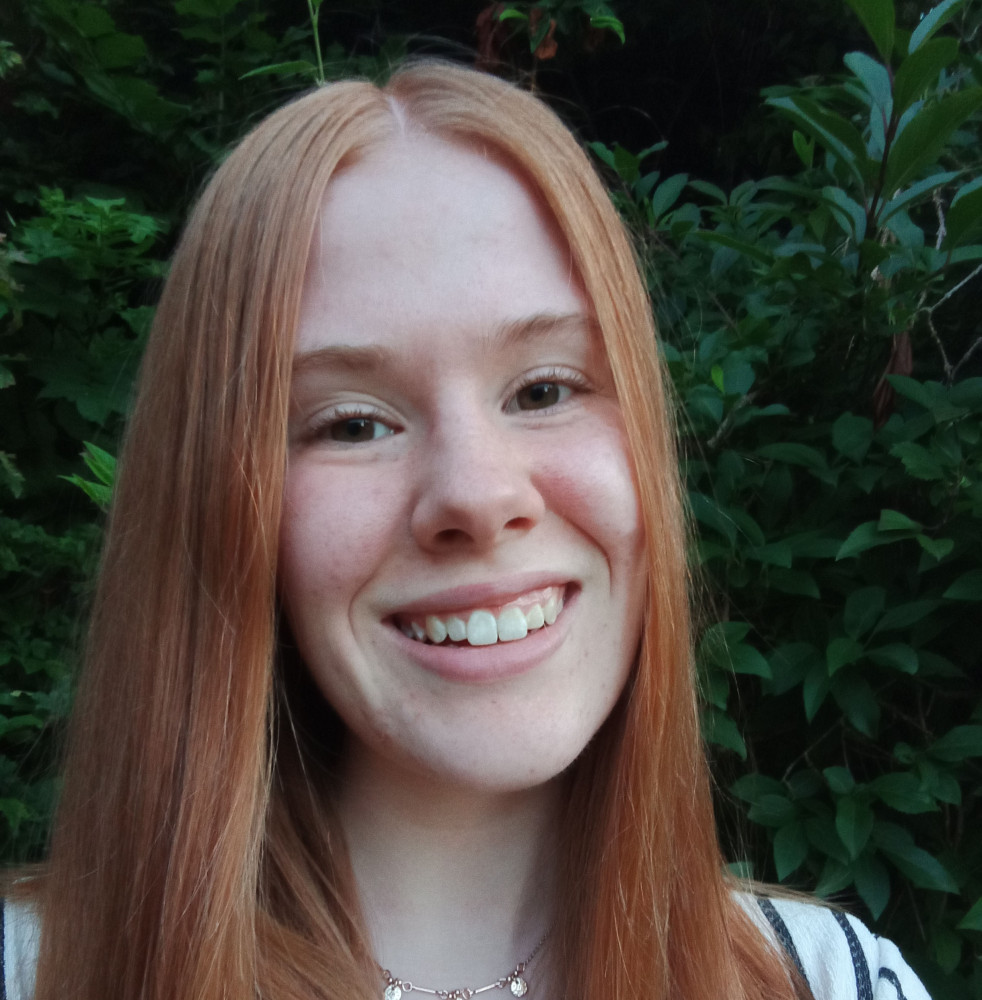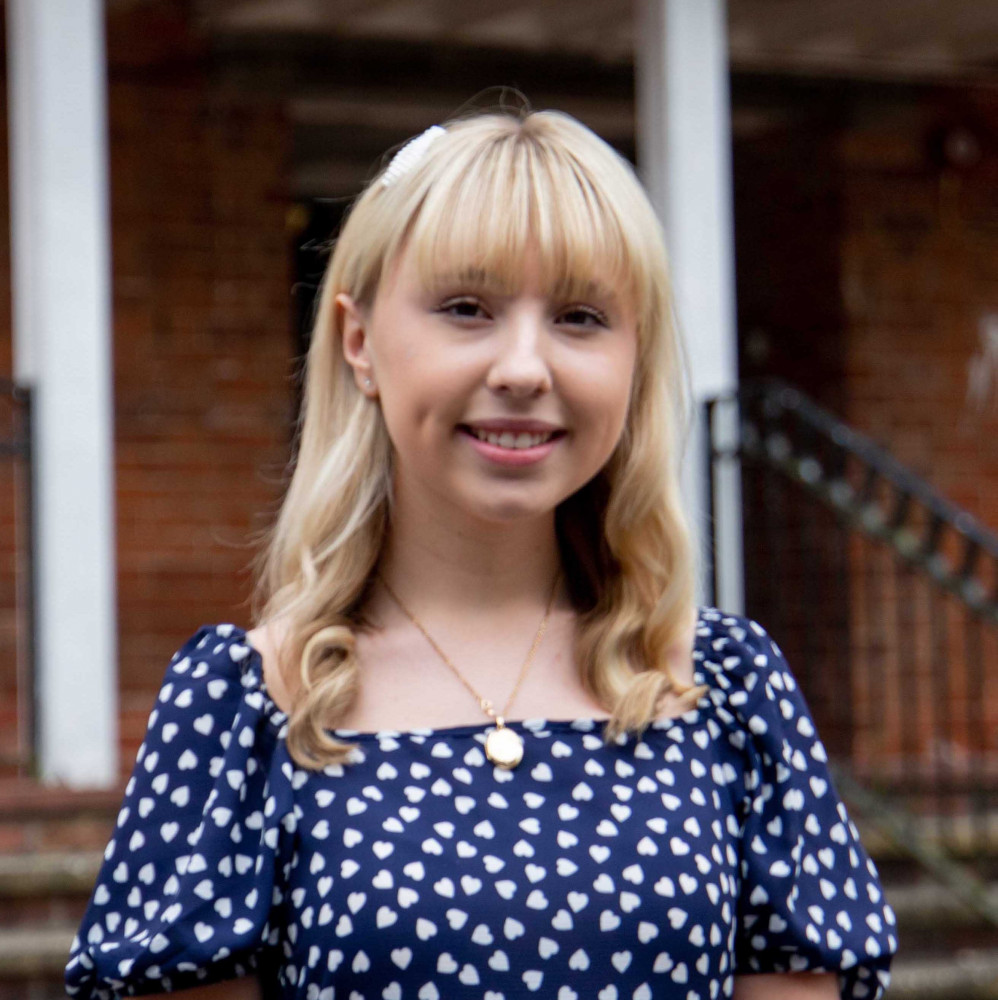Admissions team launches successful 'Book Token' competition
The brainchild of Corpus Christi Schools Liaison Officer Will Moorfoot, this summer saw the launch of a unique competition by the Corpus Admissions Team to encourage prospective students to stock up on supercurricular reading. The Corpus Book Token Competition was aimed at Year 12 students at state schools who are considering applying to study an arts, humanities or social science subject at the University of Cambridge.
The competition offered up to 10 prizes of £250, which winners could spend on academic books, digital resources and magazine subscriptions to help them explore their subject over the summer holidays and throughout Year 13.
Winners were also invited to a virtual prize-winner's day, where they had the opportunity to speak one-on-one with a Corpus Fellow who is an academic in their chosen field, and get advice on how best to spend their prize money.

Applicants had to meet at least one of certain widening-participation criteria, such as being the first in their family to study at university or belonging to a group under-represented in higher education.
Will says, "All of the entries were a pleasure to read and I was thrilled with the quality of the winning submissions. This is the first time that we’ve organised a competition like this and I think that we’ll incorporate it into our yearly outreach offering. It was great, not only to be able to offer the winners £250 in book tokens, but also provide them with one-to-one support with an academic in their field. I’m also hopeful that the competition will motivate all entrants to engage in a research project over the summer holidays, which will significantly increase the competitiveness of their university applications."
Winning entries
Applicants were asked to write 500 words describing a research project they would like to undertake related to the subject they wish to study.
Towards a more inclusive French language
 Justine Prescod from Handsworth in the West Midlands, is hoping to study Modern and Medieval Languages, and her research project is on the influence of L’Académie Française on inclusive language both in France and beyond.
Justine Prescod from Handsworth in the West Midlands, is hoping to study Modern and Medieval Languages, and her research project is on the influence of L’Académie Française on inclusive language both in France and beyond.
She says, "L’Académie Française is like nothing we have in the UK. Both language and the principles of "Liberté, Égalité, Fraternité" are central to France's national identity, so much so that L’Académie Française is responsible for monitoring shifts within Metropolitan French. Recently, measures to make French more equal have been rejected. In answering the question, "To what extent should L’Académie Française influence the progression of the French language and its inclusivity?", I aim to determine whether the existence of a language-controlling institution directly contradicts core French ideals and whether L’Académie Française should be allowed to continued to function in its current forms when it comes to diversity and equality within the French language."
Justine points out that although the Académie was successful in introducing the word 'l'ordinateur' to combat the anglicism 'computer', she I would like to explore further "the possible inclusion of gender-neutral pronouns in French as the equivalent to ‘they’ in the English language."
Justine will initially purchase The Unfolding of Language by Guy Deutscher. "Reading his text Through the Language Glass greatly shifted my perception of language and how gender within language can cause speakers to unknowingly form stereotypical notions about gender roles; I believe this text delves further into the formation and use of language. In addition to this, I would purchase Language and Gender by Mary M. Talbot, a text that provides insight about work undertaken in linguistics." She will also look for any publications that would otherwise be inaccessible to her, such as "more obscure academic journals on linguistic gender inclusivity".
Eliot and the fragmentation of culture

Anna Barnard, from Hagley, Worcestershire, is hoping to study English, and plans to research the poetry of TS Eliot. She states in her essay that she finds the values of Literary Modernism relevant and poignant in today's political, economic and cultural climate.
She says, "The impact of key political events such as Brexit, international political conflict and the Covid-19 pandemic have led to feelings of disillusionment and a loss of human agency. Our world is divided, with broken economies, broken communities, and broken families. This current landscape mirrors Eliot’s pessimistic poetry perfectly."
"I am particularly interested in how literature can be interpreted differently by contemporary or modern readers. In essence, I would take a New Historicist approach to evaluate how my own social bias within society now can influence meaning derived from Eliot’s Modernist texts. This would not only require me to explore the social, political and historical milieu of Eliot’s texts but also look at how meaning can change according to historical and political standpoint. This fluidity fascinates me."
Anna plans to purchase not only Eliot's poetry anthologies, but also literary criticism specific to his works and the Modernist movement, along with authors such as Roland Barthes and Ezra Pound. She will also buy a subscription to the digital library of academic journals, books, and primary sources JSTOR to engage with a wider scope of literary critcism.
Sniffer dogs: too good to be true?
 Currently studying A-level law, Grace Byrne, from Shropshire, entered the competition through Ludlow College's High Achievers programme for the subject of Law, focusing on the use and accuracy of sniffer dogs in our Criminal Legal system.
Currently studying A-level law, Grace Byrne, from Shropshire, entered the competition through Ludlow College's High Achievers programme for the subject of Law, focusing on the use and accuracy of sniffer dogs in our Criminal Legal system.
Fascinated by the fact that "in a world where humans are generally prevailed to be the most dominant, intelligent species, there is one arguably limiting factor which we inherently lack: the genetic, biological ability to detect drugs in the skillful way dogs undoubtedly can". Grace nevertheless has reservations about the consistent success and practical accuracy of sniffer dogs.
She says, "Research has also proven that, although sniffer dogs have the undeniable ability to sniff out drugs, they cannot physically decipher between actual possession and minute residual scents of drugs. Subsequently, dogs can indicate people who may have innocently shaken hands or exchanged currency with a drug user in the past, leading me to question whether dog’s noses are, perhaps, too sensitive to be successful? Efficacy can also waver depending on breed, behavioural biases and training, (which is not mandatory or regulated in many US states) as well as environment, with dogs working much less accurately outdoors and in cars.
"I find it arguable that police are relying on this tool with such high margins of error to justify 'reasonable grounds', particularly when many of those indications can lead to invasive, degrading strip searches."
After winning the prize, Grace says she is "excited to progress her research and understanding of this topic further throughout the summer, utilising books, news articles and past legal cases."
Can a classical approach revive a dying language?
 Samia Rashid from Woodford in London attended a Corpus masterclass in March presented by Dr Tom Nelson, Classics beyond the Classical, where her attention was caught by a reference to the Sophytos Inscription, written in Greek by an Indian man in the 2nd century BC in the city of Kandahar. This inspired her to reconsider her previous attempts to learn the Sylheti Bengali spoken by her family and written using the Nagri script, a language that is endangered and considered by many to be 'bastardised and improper'. Similarly, she says, Latin is commonly seen as 'dead and archaic', surviving in cultural references but lost to daily use.
Samia Rashid from Woodford in London attended a Corpus masterclass in March presented by Dr Tom Nelson, Classics beyond the Classical, where her attention was caught by a reference to the Sophytos Inscription, written in Greek by an Indian man in the 2nd century BC in the city of Kandahar. This inspired her to reconsider her previous attempts to learn the Sylheti Bengali spoken by her family and written using the Nagri script, a language that is endangered and considered by many to be 'bastardised and improper'. Similarly, she says, Latin is commonly seen as 'dead and archaic', surviving in cultural references but lost to daily use.
"Despite this, Classics has offered another outlook beyond this interpretation, arguing that Latin has conscientiously found new significance in Western development [...] The historical rediscovery of Sylheti is more urgent and significant than ever before. Its disappearance can be combatted by looking at how we kept the Classical world alive. We overcame the quasi-destruction of the Library of Alexandria through recopying ancient texts and facilitated access to artefacts via museums. Through Classics, I want to develop a grammar resource for Sylheti, using cultural and historical stories."
Samia will use the prize to buy the Cambridge Latin Course series, as well as language learning books with non-Roman scripts and polyglot theory, along with Shuddho-Sylheti literature and ‘Classical Language and Society’ for comparison.
Linking language and history
Sofia Davis-Jurado from Merseyside has been studying Latin independently, even though it is not offered at her sixth form. She is already multilingual, having learned French, Spanish and some Portuguese and Italian. Now, she says, "I would like to study Latin, Ancient Greek and their modern influence for the purpose of preparing to study these languages in a Classics degree. Becoming familiar with them will be key to feeling comfortable in the course, and I have already studied some basics of Latin independently. Language and history are intrinsically linked though etymology and use in their eras, and I find this fascinating. In this subject, there is a broad variety of topics that can be covered, and I am deeply interested in many aspects, including architecture, art, history, philosophy and language. The history of Latin as a lingua franca in the ancient world, Catholic Church and the scientific community is very intriguing. My end goal would be to grasp a more complete understanding of the languages as a whole, with a particular focus on Latin. In addition to this, I hope "
Books Sofia intends to buy include the Oxford Latin Course and Cambridge Latin Course, Adolescens magazine, the Oxford Classical Greek Dictionary, as well as texts in their original language so she can practise some translation skills. These could include Metamorphosis by Ovid, the Aeneid and various works by Cicero, Eutropius, Caesar and Catullus, along with books about classical history such as SPQR by Mary Beard and Histories by Herodotus.
Who's at home in Tower Hamlets?
Afzal Hussain hopes to study HSPS and plans to research the changing demographics in his home area of Tower Hamlets in East London.
He says, "My hypothesis is that with an increase in immigrant families, there has also been an increase in extended families living in the same property. I am excited to undertake this research project as Tower Hamlets is the area in which I grew up, and therefore it holds a significant importance in my life. As I am from a British Bangladeshi background myself, I have a first-hand account of living in an extended family and I am interested in investigating whether this has changed over time, and whether the norms that I have experienced are as predominant in other ethnicities such as in White British, Somali and other south Asian ethnicities like Pakistani and Indian families."
Afzal plans to use a combination of qualitative and quantitative research methods "ranging from unstructured interviews of local residents to government statistics." With his prize money he plans to buy books relevant to the HSPS curriculum, such as The Storyteller by Jodi Picoult, Junk by Melvin Burgess and The Sociological Imagination by C. Wright Mills. Finally, he says, "In order to expand my understanding on sociological and political matters in the current context, I would also like to purchase a subscription to the Economist."
Many congratulations to the winners.
